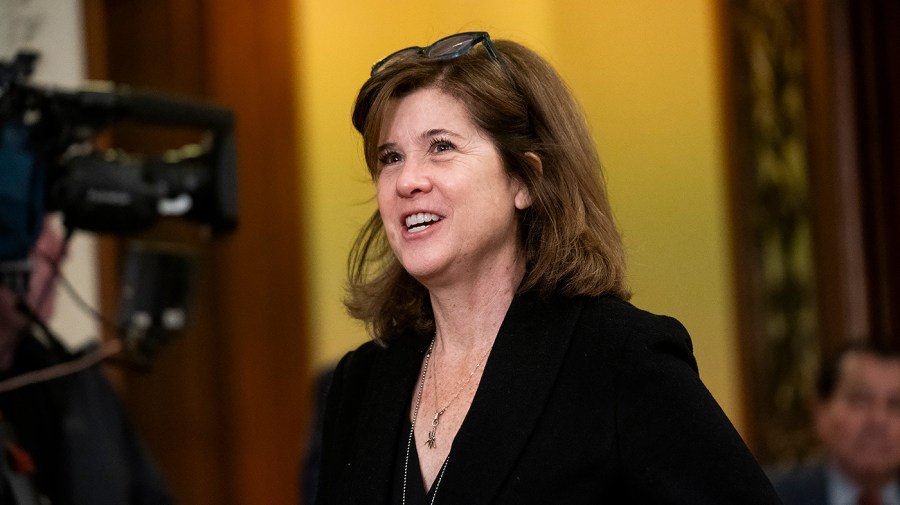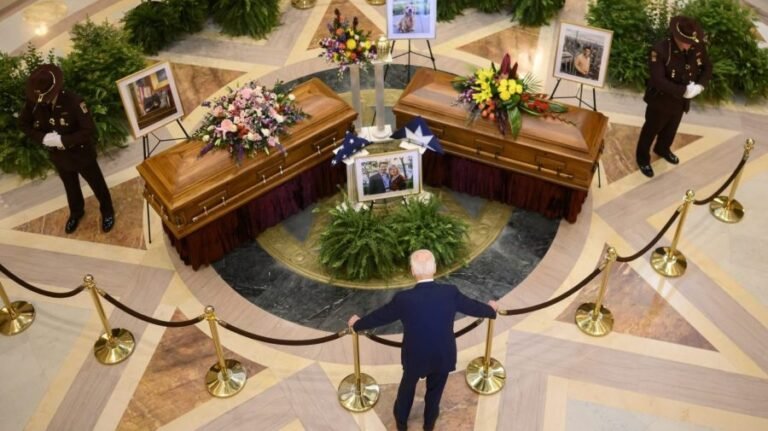
The Senate parliamentarian on Friday ruled that a Republican attempt to charge migrants a $1,000 fee when applying for asylum violates the Senate’s Byrd Rule and cannot be included in the GOP megabill to enact President Trump’s legislative agenda.
The mandatory $1,000 fee for asylum applications is one of several immigration-related fees the parliamentarian, Elizabeth MacDonough, rejected in her review of the massive budget reconciliation package set for a vote Saturday.
She ruled against a section of the bill to impose a $100 fee on migrants who request a continuance in immigration court and a provision to require the Department of Homeland Security to impose a $250 fee for applying to the diversity visa lottery and a $400 fee to process diversity visa applications.
MacDonough advised against language to require a $5,000 bond to sponsor an unaccompanied child who fails to appear in immigration court, a bond that would be returned if the child does not receive an in absentia removal order.
She also rejected language expanding expedited removal procedures for migrants who are arrested of crimes — removal procedures that were beefed up earlier this year when Congress signed and Trump signed the Laken Riley Act.
Sen. Jeff Merkley (D-Ore.), the ranking member of the Senate Budget Committee, applauded the parliamentarian’s rulings.
“We have been successful in removing parts of this bill that hurt families and workers, but the process is not over, and Democrats are continuing to make the case against every provision in this Big, Beautiful Betrayal of a bill that violates the Senate rules,” he said in a statement.
The parliamentarian also rejected language in the bill to appropriate $85 million to transfer the space shuttle in display at the Smithsonian Air & Space Museum to a nonprofit group in Houston.
Moving the shuttle to Houston was a priority of Sens. John Cornyn (R-Texas) and Ted Cruz (R-Texas), the chair of the Senate Commerce, Science and Transportation Committee.
Cruz argued the shuttle belonged in Houston, home of the Johnson Space Center and Mission Control, to recognize the city’s importance to space flight and give thousands of visitors to “engage with a living piece of NASA’s history and understand why Houston is known worldwide as ‘Space City.’”
The parliamentarian also knocked out of the bill several provisions that provided guidelines about how broadband spectrum is auctioned.

